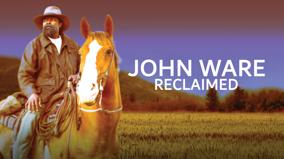New release
Coming
None
 What is Democracy?
What is Democracy?
2018
1 h 47 min
Leaving soon
Featuring a diverse cast—including celebrated philosophers, trauma surgeons, factory workers, refugees, and politicians—What Is Democracy? connects past and present, emotion and the intellect, the personal and the political, to provoke and inspire. If we want to live in democracy, we must first ask what the word even means.

Details
Featuring a diverse cast—including celebrated philosophers, trauma surgeons, factory workers, refugees, and politicians—What Is Democracy? connects past and present, emotion and the intellect, the personal and the political, to provoke and inspire. If we want to live in democracy, we must first ask what the word even means.
-
directorAstra Taylor
-
producerLea Marin
-
executive producerAnita Lee
-
director of photographyMaya Bankovic
-
editorRobert Kennedy
-
sound recordistSanjay Mehta
-
featuringSilvia FedericiEleni PerdikouriHarrison PreddyHannah NilesCornel WestMickey Michaux Jr.William Barber IIDelaney VandergriftEfimia KarakantzaEulalia FranciscoAlfonso GonzalezWalter VicenteWendy BrownGeorge PapandreouAspasia BaltaZoe KonstantopoulouEmmy KoutsopoulouAngela DavisBadili JonesAja MonetChristian GuerrierVictor On-SangJacques LarocheTanya ZakrisonRishi RattanNicholas NamiasEllie BrettSalam MagamesAbid MuhajirHasan Hmeydan
-
writerAstra Taylor
-
musicHeather McIntosh
-
associate producerPatricia Boushel
-
additional cinematographyMartina RadwanMichael GalinskyOlympia Mytilinaiou
-
1st assistant cameraChristopher GollIrina Zevgoli
-
assistant editorKevin Riley
-
additional editingLawrence Jackman
-
production managerDenia SafariJacques LarocheChristina Carvalho
-
production consultantDenia SafariJacques Laroche
-
manager studio operationsMark Wilson
-
production supervisorMarcus Matyas
-
production coordinatorKate VollumJennifer BertlingJessica Lozano CastroCarla Murphy
-
studio administratorStephanie BrantnerLeslie Anne Poyntz
-
technical coordinatorKevin RileyLuc BinetteCandice Desormeaux
-
fixerDenia SafariChristos GiovanopoulosAlison ErcolaniNatalia Maria GuechevaStan Draenos
-
art directorAndrew Berry
-
production assistantNye TaylorStellios DimoutsisSpyridon-Stylianos DrainasRobin HughesLeina BocarSuki Hawley
-
translatorDenia SafariChristos GiovanopoulosHasan HmeydanAspasia DassiosAda VolkmerLoida Ginocchio-SilvaMolly HemstreetSerence HusniNicole BensonMaria-Saroja PonnambalamDeborah Wassertzug
-
editorial researcherPatricia Boushel
-
archival researcherElizabeth KlinckDora ChondropoulouJivan NagraAstra Taylor
-
transcriptionAurora Diana PrevelicNye TaylorQueen Arsem-O'MalleyNicki Benson
-
additional musicA HawkA Hawcksaw
-
music playerHeather McIntoshJohn LindamanJeremy BarnesDylan Ryan
-
music engineerHeather McIntosh
-
music mixerBrendyn Adams
-
technical music assistantBlake BunzelConnor Cook
-
online editorSerge Verreault
-
re-recording mixerSerge Boivin
-
graphic designCynthia OuelletKevin Yuen-Kit Lo
-
titlesCynthia OuelletKevin Yuen-Kit Lo
-
digital editing technicianPatrick Trahan
-
sound facilitiesTattersall Sound & Picture
-
sound designerDavid McCallum
-
sound effects editorDavid Rose
-
dialogue/sync editorClaire Dobson
-
re-recording dialogue mixerJames Bastable
-
publicistJennifer Mair
-
marketing managerMelissa WheelerAmanda Laukys
-
legal counselPeter Kallianiotis
Education
Ages 14 to 18
Mini-lessons
School subjects

















